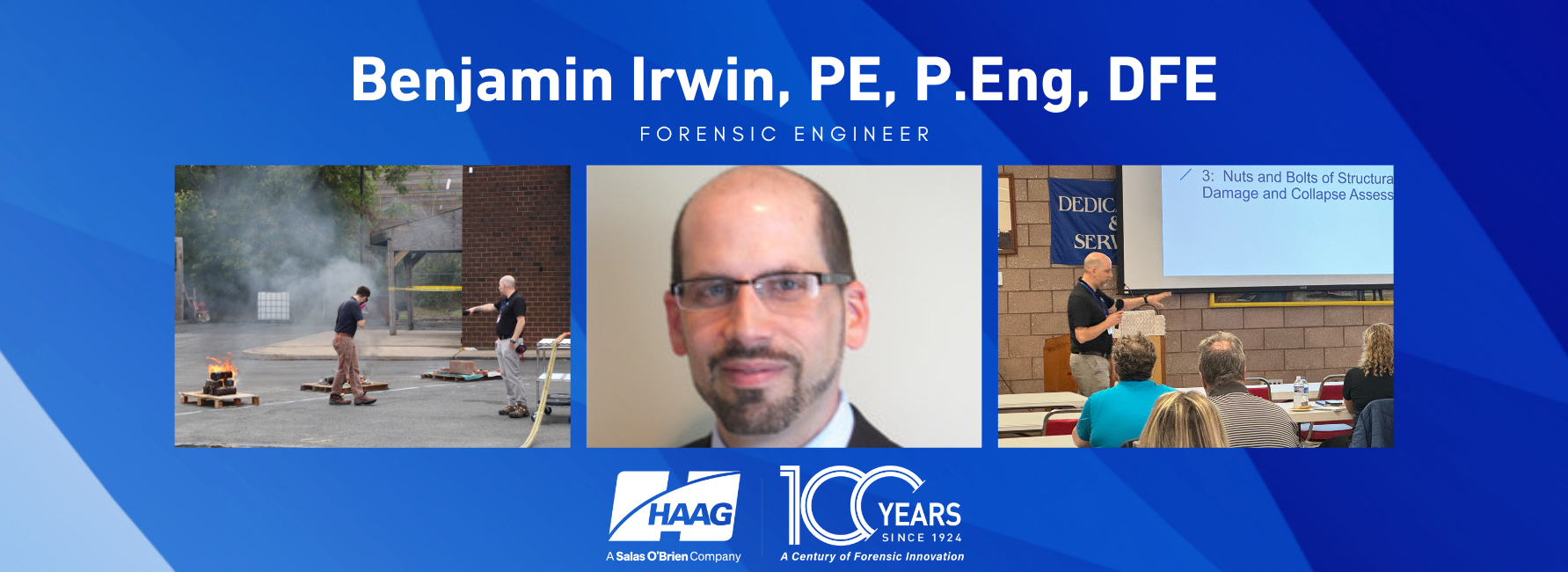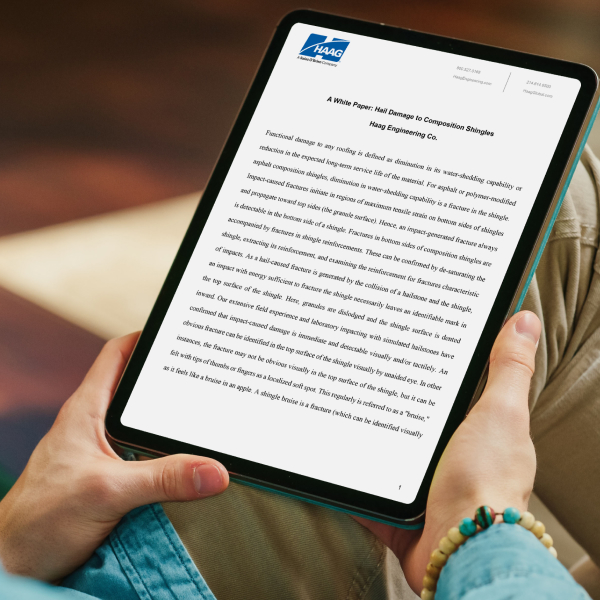Benjamin Irwin: Expert Forensic Engineer Driving Innovation
Benjamin (Ben) Irwin’s expertise as a forensic engineer is defined by his deep understanding of engineering, architectural, and construction principles, coupled with over 26 years of professional experience. Ben’s career spans a wide range of consulting services, including multi-disciplinary engineering and architectural design, damage and repair assessments, construction defects, safety engineering, and expert witness litigation support. His qualifications as a registered Professional Engineer (P.E.) in 24 U.S. states and British Columbia, Canada (P.Eng.), along with his designation as a Model Law Engineer (MLE) by the National Council of Examiners for Engineering and Surveying (NCEES), underscore his commitment to the highest standards in the field. Ben’s thorough approach, coupled with his certification as a Diplomate Forensic Engineer (DFE) from the National Academy of Forensic Engineers, makes him a trusted leader in forensic investigations.

A key example of Ben’s ability to lead and adapt in complex, high-stakes environments was his response to a vehicle impact assignment with structural collapse potential. Within 24 hours, he assembled a team of engineers, architects, and construction personnel, mobilized 3D scanning equipment and high-reach lifts to respond to the developing public safety concerns. His swift actions led to a same-day letter identifying the imminent collapse danger and the need to cordon off the area. When the structure partially collapsed the following weekend, Ben coordinated a second rapid response. He addressed the potential dangers of collapse progression, ensured safe debris removal, and facilitated further inspection and remediation efforts. His quick thinking and ability to mobilize resources underscores his leadership in urgent response scenarios.
Innovation is central to Ben’s approach to forensic engineering. In a fire-damage loss case involving a building next to a collapsed structure, he developed a phased investigative methodology to address safety concerns during inspection. Using 3D scanning technology, Ben assessed the structural deformation of a formerly shared wall from nearby rooftops, then used the data to plan safe entry for further analysis from the inside out. This methodical, data-driven approach not only allowed for a safe inspection but also prevented further collapse. His strategic use of technology and phased investigations exemplifies his ability to provide precise, adaptive engineering solutions for both assessments and remediation.
Collaboration is a cornerstone of Ben Irwin’s work, particularly when tackling complex claims and client assignments. He leads cross-functional teams with a clear understanding that no two assignments are alike—each investigation requires a tailored approach that reflects the unique challenges presented. Ben believes in engaging collaboratively with clients from the very beginning, helping them refine their needs and align their expectations with scientifically reliable investigative methodologies. This proactive collaboration sets the stage for more effective investigations, ensuring that clients are empowered and informed throughout the process.
The internal collaboration among the team is just as critical. Ben strategically builds teams that can leverage individual strengths while avoiding unnecessary overlap in efforts, all with the goal of delivering the highest-quality investigation and reporting. His ability to organize, plan, and direct complex investigations, along with his willingness to step back and let others on his team shine, exemplifies the collaborative culture he fosters.
Ben’s leadership and accomplishments have earned him notable recognition, including being named Project Leader of the Year in 2021. His work spans a diverse range of projects, from large-scale commercial and residential developments of complex buildings to high-rise skyscrapers and even bridges. Ben’s experience in addressing post-collapse, fire-related damage, and high-risk structural failures makes him an invaluable asset in forensic investigations.
Looking ahead, Ben is excited about the future of forensic engineering, particularly in the development of new ways to distill complicated in-field data, even when acquired at large scale by teams of experts, into clear, concise, and meaningful visualizations that are easier and faster for clients to understand. His passion for advancing the field and his commitment to excellence make him an exceptional figure in the industry.

